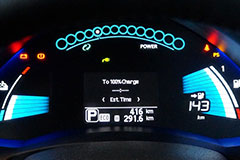Your Car Is Trying To Show You Something - Remember the Signs - Vol.376
No matter how your old car is, you need to take care of it. It sounds pretty obvious, but it seems like a lot of people need to be reminded of that very often. We expect our cars to last us a long time, driving through all sorts of conditions, but the harsh reality is that your car will only last you for a long time if you take care of it on a regular basis. That means every year, and even every month for some smaller things - not once in a decade.

If you happen to have a high-tech new-ish car that's at least couple of years old, it will probably tell you from time to time what's wrong with it. It can be as simple as flashing the "check engine" light, but newer cars will also have more sophisticated notifications, so you know exactly what's wrong with your car. And once you know that information, you can take the car to a mechanic and have it fixed - of just fix it yourself, if you have the necessary skills and if you're not afraid of getting your hands dirty.
But even without the high-tech sophistications of modern cars' computers, there are still ways to figure out if there's something wrong with your car. For example, if you hear squeaking in your wheels every time you brake, that means that there's something wrong with your brakes. Don't ignore it! Bad brakes can cost you a lot, and we're not talking about finances. If you're driving on slippery roads, bad brakes will prolong the stopping distance, and that can be very dangerous.
Another sign that your car can be showing is the smell. Namely, any odd smell that's not familiar to you is not good. If you smell exhaust fumes inside the car, that's a huge reason for concern and you should immediately take action. Another strange smell could be that of the coolant, if it's leaking. You'll recognize leaking coolant by its unique sweet smell. You might not be bothered by it like you would with exhaust fumes, but leaking coolant means that the engine is not being cooled properly, and that's one of the most important things about any car's engine.
And staying on the topic of smell, if you're sensing a smell of sulfur that might be about the problems related to the battery and catalytic converter. On the other hand, a smell of mold or mildew is a sure indicator of that there's something wrong with the car's air circulation system and A/C.
Now, let's move to the sense of touch. Yes, just by touching things, you can sense what's wrong with your car. Not in the "psychic" sense, of course. Check for any rattles, vibrations and any loose parts that might affect how your car works. Make sure the air vents are working properly and that they're not obstructed by any odd objects, ensuring that the air inside the car is always clean.
Feel the steering wheel - this means any odd vibration, which tells you that there's something wrong with the wheels or brakes. If the steering wheel is not reacting, as usual, that might indicate a problem with the steering rack or the steering column. Another part of the car that you should feel are the brakes, and look for any odd vibrations or movements.
Indeed, there are a lot of signs that your car might be showing, trying to "tell" you that there's a problem. No need to stress about it; just make sure to take care of it on a regular basis and your car will be your faithful companion for many years to come.